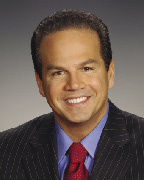By any measure, spring's entry was particularly harsh. The unprecedented flooding left many home and business owners devastated and facing enormous loss. On the heels of an already unprecedented downturn in our state's economy and double-digit unemployment, a bad situation turned worse, and weeks later, many are still reeling in the aftermath.
As we became the unwanted face of national and international news coverage, families, workers and business owners struggled to salvage precious goods and personal keepsakes against all odds. Statewide, homes, storefronts, schools, fire stations - few were spared, and the losses estimated to be in the millions of dollars, or more.
At the foot of Federal Hill, along Valley St., Harris Ave. and Manton Ave., many were particularly hard-hit. I spoke with many merchants and residents, whose properties suffered severe damage from the flood-swollen Woonasquatucket and heavy rains. Roof leaks, cracked foundations, basement flooding, power outages, forced closings and lost revenue, rain-soaked cartons and food products, studio damages, equipment losses, mechanical failures and more, were common complaints. For many, this epic storm meant they'd have to shutter their doors for weeks, months or permanently.
It was a scene repeated in cities and towns all across Rhode Island, Connecticut and Massachusetts.
To help get families and businesses back on their feet, Rhode Island's mayors and town managers called on President Obama to give urgent and specific attention to our city and region. And within hours, our President was on the telephone to the governor, and Homeland Security chief Janet Napolitano was on her way to join mayors, Congressmen, and state and federal officials in a tour of our state. He also made a tour of nearby Massachusetts. In Rhode Island, we made a unified front in making the case for substantial and immediate help. As a group, we asked secretary Napolitano to provide immediate help for infrastructure repair to water treatment facilities and bridges and consider dredging the Pawtuxet River to protect against future flooding.
Grants not loans
I urged secretary Napolitano to think first of the people for whom resources are the most scarce. So many Rhode Island residents and business owners were hanging on by a thread before this emergency. For many, the option of a low-interest rate loan isn't a practical solution to their immediate problems, and reminded her these people need grants, not loans, that are available right away, while they're trying to figure out how to pay to have their basements pumped or to have a contractor come test the electrical equipment for safety.
Two days later, I toured the city with United States senator Jack Reed, officials from the Providence Emergency Management Agency and representatives of the Small Business Administration, to get information out to homeowners and businesses about targeted disaster relief assistance. Within short order, I and the other mayors directed city and town officials to disseminate information to residents and business owners on how to cope with the crisis.
How to apply for help
FEMA deputy administrator Serino urged residents (homeowners and residents) and business owners to register with FEMA as soon as possible to establish immediate eligibility. To register, call 800-621-FEMA(3362) or go to their website at www.fema.gov. Other reported help includes:
*FEMA will award grants of up to $29,900 to homeowners and renters to help with temporary relocation or to make a home safe and sanitary. Grants do not have to be paid back.
*Some additional expenses may be covered by homeowner or renter insurance, and you should check with your individual carrier.
*SBA loans for expenses not covered by FEMA and insurance are available at interest rates of 2.625% or 5.25%. Limits are $200,000 for damage to real estate (homeowners,) and $40,000 for personal property (homeowners and renters.)
*Other needs FEMA grants - if SBA determines you qualify for help but cannot afford loan payments, they may refer you back to FEMA for additional help.
Just as this cleanup will take weeks or longer to complete, so too, will our road to personal and economic recovery. And while we cannot control Mother Nature, we can take consolation in knowing disasters historically bring out the best of us: testimony to our grit, our courage and our commitment to community.
David Cicilline is the mayor of Providence.
Tags:








